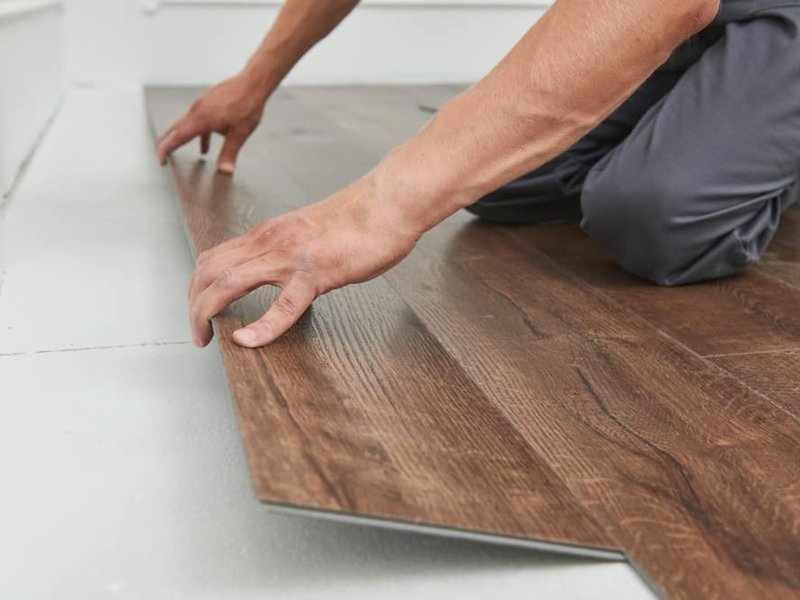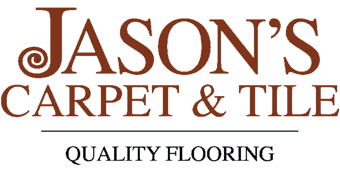The Pros and Cons of Vinyl Flooring: Making an Informed Decision

The Pros and Cons of Vinyl Flooring: Making an Informed Decision
When it comes to flooring options, vinyl has gained significant popularity in recent years. With its durability, affordability, and versatility, vinyl flooring has become a go-to choice for many homeowners. However, like any other flooring material, vinyl has its own set of pros and cons. In this blog post, we will explore the advantages and disadvantages of vinyl flooring, helping you make an informed decision for your home.
What Is Vinyl Flooring?
Vinyl flooring is a type of multi-layered synthetic flooring. Made from materials like plastic, fiberglass, and PVC, vinyl flooring typically comes in planks, tiles, or sheets that can then be assembled.
Pros of Vinyl Flooring:
Durability and Resilience:
Vinyl flooring is known for its exceptional durability and resilience. It can withstand heavy foot traffic, making it suitable for high-traffic areas like entryways, kitchens, and hallways. Vinyl is also resistant to scratches, stains, and dents, making it an ideal option for households with pets or children.
Water and Moisture Resistance:
One of the significant advantages of vinyl flooring is its ability to resist water and moisture. Unlike hardwood or laminate flooring, vinyl can be installed in areas prone to moisture, such as bathrooms, laundry rooms, and basements. Vinyl's water-resistant properties make it less susceptible to damage from spills or leaks, ensuring longevity and easy maintenance.
Easy Maintenance:
Vinyl flooring requires minimal upkeep, making it a convenient choice for busy households. Regular sweeping or vacuuming, along with occasional mopping using a mild cleaner, is usually sufficient to keep vinyl floors looking clean and fresh. The protective wear layer of vinyl also helps prevent stains and makes it easy to wipe away dirt and spills.
Versatile Design Options:
With vinyl flooring, you have a vast array of design options. Vinyl can mimic the look of natural materials such as hardwood, stone, or ceramic tile, allowing you to achieve the desired aesthetic for your space at a fraction of the cost. Whether you prefer a rustic, modern, or traditional style, vinyl offers an extensive range of colors, patterns, and textures to suit your preferences.
Affordability:
Vinyl flooring is much more budget-friendly than other options like hardwood or natural stone. Its lower material and installation costs make it an attractive choice for homeowners on a tight budget. Vinyl flooring provides excellent value for money while still offering durability and aesthetic appeal.
Vinyl is quite affordable and has an uncomplicated installation process that can be DIY-ed fairly easily.
Cons of Vinyl Flooring:
Environmental Concerns:
While vinyl flooring has many advantages, it is essential to consider the environmental impact of this material. Vinyl is made from synthetic materials and can release volatile organic compounds (VOCs) into the air, potentially affecting indoor air quality. Additionally, vinyl is not biodegradable and can be challenging to recycle, contributing to landfill waste.
Off-gassed VOCs can adversely affect health, and an indoor environment, particularly without windows or ventilation, will lead to higher concentrations.
Susceptible to Fading:
Vinyl flooring, especially those with a lower quality wear layer, can be prone to fading when exposed to direct sunlight over time. If you have large windows or a sun-drenched room, it is advisable to choose higher-quality vinyl with UV protection to minimize the risk of discoloration.
Susceptible to Scratches and Tears:
Although vinyl is generally durable, it is not completely impervious to scratches and tears. Heavy furniture, sharp objects, or dragging heavy items across the floor can cause damage to vinyl surfaces. Placing furniture pads or protective mats under heavy objects can help minimize the risk of scratches and tears.
Limited Repairability:
Unlike some other flooring options, repairing vinyl flooring can be challenging. If a section of the floor becomes damaged, it may require replacing the entire affected area rather than just a small portion. This can be time-consuming and costly, particularly if the vinyl has been discontinued or is no longer available.
In conclusion, vinyl flooring has both pros and cons that should be carefully considered before making a decision. Its durability, water resistance, easy maintenance, and versatile design options make it an attractive choice for many homeowners. Additionally, vinyl flooring is often more affordable than other flooring materials, providing excellent value for money.
However, it's important to be aware of the potential environmental concerns associated with vinyl flooring, including the release of VOCs and its non-biodegradable nature. Furthermore, vinyl can be susceptible to fading, scratches, and tears, and repairs can be challenging and costly.
Ultimately, the choice of flooring depends on your specific needs, preferences, and circumstances. If you prioritize durability, affordability, and easy maintenance, vinyl flooring might be a suitable option for you. However, if environmental considerations or concerns about potential damage are important to you, exploring alternative flooring materials might be worth considering.
Consider Jason's Carpet and Tile as your floor stylist; we can provide expert guidance and a wide range of flooring options to suit your needs. Contact us today to explore our offerings and take the first step towards transforming your home with beautiful and functional flooring.
